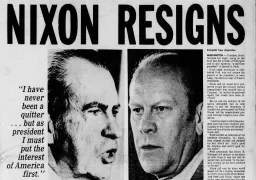Battle of Trafalgar
One of the most decisive naval battles in history, the Battle of Trafalgar, took place on this day. British Admiral Horatio Nelson led the Royal Navy to a spectacular victory over Napoleon’s combined French and Spanish fleets off the coast of Spain. Nelson’s strategic brilliance and courage in this battle made a lasting impact on […]
Muammar Gaddafi is captured and killed
After months of civil unrest and a NATO-led intervention, former Libyan leader Muammar Gaddafi was captured and subsequently killed by opposition forces. His demise marked a significant moment in the Libyan revolution, shaping the country’s future trajectory.
The Sydney Opera House
A masterpiece of modern architecture, the Sydney Opera House opened its doors to the public on October 20th, 1973. Designed by renowned architect Jørn Utzon, this iconic cultural venue has become a symbol of Sydney and a UNESCO World Heritage Site, hosting countless performances and events over the years.
The Louisiana Purchase
On this day, the U.S. Senate ratified the Louisiana Purchase, a monumental acquisition of land from France that doubled the size of the young United States. This historic event paved the way for westward expansion and profoundly influenced the nation’s growth and development.
Black Monday
On this day, global financial markets plummeted, experiencing one of the most devastating crashes in history. Known as Black Monday, this event sent shockwaves through the global economy, reshaping financial regulations and investment strategies for years to come.
Blockbuster Opens
The entertainment landscape transformed as Blockbuster, the iconic video rental store, opened its doors, ushering in an era of movie nights and cinematic adventures for millions. It became a cultural phenomenon and a beloved memory for movie enthusiasts around the world.
British Surrender at Yorktown
A pivotal moment in American history, the surrender of British forces at Yorktown marked the decisive turning point in the Revolutionary War, leading to the eventual independence of the United States. It was a triumph of determination, strategy, and the enduring spirit of freedom.
Venera 4

The Russian Venera 4 became the first spacecraft to measure the atmosphere of another planet. This spacecraft first showed that the major gas of Venus’ atmosphere is CO2.
The Alaska Purchase

Alaska was formally transferred to the United States on October 18, 1867, through a treaty ratified by the United States Senate.
Edict of Nantes Revoked

Edict of Nantes lifted by Louis XIV. The edict, signed at Nantes, France, by King Henry IV in 1598, gave the Huguenots religious liberty, civil rights and security. By revoking the Edict of Nantes, Louis XIV abrogated their religious liberties.
